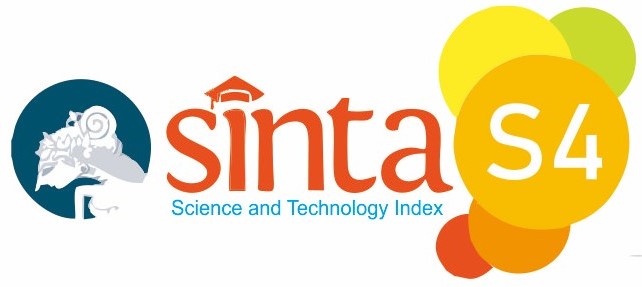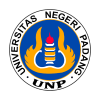THE ROLE OF CURIOSITY AND SOFT SKILLS IN DRIVING STUDENT PARTICIPATION IN INTERNSHIP AND CERTIFIED INDEPENDENT STUDY PROGRAMS
Abstract
Higher education in Indonesia plays an important role in developing and enhancing students' knowledge, skills, and understanding across various fields of study, in accordance with the Republic of Indonesia Law Number 12 of 2012 on Higher Education. The "Merdeka Belajar Kampus Merdeka" (MBKM) program has been introduced as part of higher education reform in Indonesia, but there remains a need to understand the factors driving student participation, particularly in the Certified Internship and Independent Study Program (MSIB). This study aims to identify curiosity as a factor driving student participation in the MSIB program through the development of soft skills as a mediating variable. This research employs descriptive analysis with a quantitative approach. Data were collected from 189 students of the Department of Mechanical Engineering FT-UNP through questionnaires and analyzed using SEM with SmartPLS to examine the relationships between curiosity, soft skills, and participation in the MSIB program. The results show that curiosity has a positive influence on student participation in the MSIB program through the development of soft skills. This is indicated by a path coefficient 0.267 and T-statistic value 1.680, suggesting a positive relationship between curiosity and participation in MSIB through soft skills. These findings suggest that to increase student participation in the MSIB program, higher education institutions need to focus on the development of Soft abilities as a crucial component of the educational journey. Moreover, programs that stimulate student curiosity need to be strengthened to prepare them for the workforce with competencies that meet market demands.
References
Arikunto, S. (2006). Prosedur Penelitian Suatu Pendekatan Praktik (Revisi VI). PT Rineka Cipta.
Castro, M. D. B., & Tumibay, G. M. (2021). A literature review: efficacy of online learning courses for higher education institution using meta-analysis. Education and Information Technologies, 26(2), 1367–1385. https://doi.org/10.1007/s10639-019-10027-z
Febrianto, P. T., Maureen, I. Y., & Bachri, B. S. (2023). Evaluation of MBKM Program Implementation in Elementary Schools. Jurnal Pamator : Jurnal Ilmiah Universitas Trunojoyo, 16(3), 509–526. https://doi.org/10.21107/pamator.v16i3.20278
Fuadi, T. M., & Irdalisa, I. (2022). Merdeka Belajar Kampus Merdeka: Application in Education Faculty. AL-ISHLAH: Jurnal Pendidikan, 13(3), 2747–2756. https://doi.org/10.35445/alishlah.v13i3.1125
Giesenbauer, B., & Müller-Christ, G. (2020). University 4.0: Promoting the Transformation of Higher Education Institutions toward Sustainable Development. Sustainability, 12(8), 3371. https://doi.org/10.3390/su12083371
Hadjar, I. (1996). Dasar-dasar metodologi penelitian kwantitatif dalam pendidikan (1st ed.). Raja Grafindo Persada.
Hair, J. F., Black, W. C., Babin, B. J., & Anderson, R. E. (2019). Multivariate Data Analysis. Cengage Learning.
Hair, J. F., Sarstedt, M., Ringle, C. M., & Mena, J. A. (2012). An assessment of the use of partial least squares structural equation modeling in marketing research. Journal of the Academy of Marketing Science, 40(3), 414–433. https://doi.org/10.1007/s11747-011-0261-6
Haji, W. H., Ariestianie, R. A., Intikhobah, I., & Jalil, A. (2023). Panduan Pelaksanaan Program Magang dan Studi Independen Bersertifikat. Kementerian Pendidikan, Kebudayaan, Riset, dan Teknologi Republik Indonesia.
Hamzah, H., Tambak, S., & Hayati, M. (2021). Pengembangan Keterampilan Menulis Akademik Mahasiswa: Pengaruh Jenjang Kelas dan Latar Belakang Orang Tua. JKIP : Jurnal Kajian Ilmu Pendidikan, 2(1), 30–35. https://doi.org/10.55583/jkip.v2i1.125
Ifenthaler, D., & Yau, J. Y.-K. (2020). Utilising learning analytics to support study success in higher education: a systematic review. Educational Technology Research and Development, 68(4), 1961–1990. https://doi.org/10.1007/s11423-020-09788-z
Kashdan, T. B., & Silvia, P. J. (2009). Curiosity and Interest: The Benefits of Thriving on Novelty and Challenge. In S. J. Lopez & C. R. Snyder (Eds.), The Oxford Handbook of Positive Psychology (pp. 366–374). Oxford University Press. https://doi.org/10.1093/oxfordhb/9780195187243.013.0034
Kuncoro, J., Handayani, A., & Suprihatin, T. (2022). Peningkatan Hard skillMelalui Kegiatan Merdeka Belajar Kampus Merdeka (MBKM). Proyeksi: Jurnal Psikologi, 17(1), 112–126. https://jurnal.unissula.ac.id/index.php/proyeksi/article/view/20431/6859
Listiani, N. M. (2017). Pengaruh Kreativitas dan Motivasi Terhadap Hasil Belajar Mata Pelajaran Produktif Pemasaran pada Siswa Kelas XI SMK Negeri 2 Tuban. JURNAL EKONOMI PENDIDIKAN DAN KEWIRAUSAHAAN, 2(2), 263. https://doi.org/10.26740/jepk.v2n2.p263-275
Marliana, R. R. (2019). Partial Least Square-Structural Equation Modeling Pada Hubungan antara Tingkat Kepuasan Mahasiswa dan Kualitas Google Classroom Berdasarkan Metode Webqual 4.0. Jurnal Matematika, Statistika Dan Komputasi, 16(2), 174. https://doi.org/10.20956/jmsk.v16i2.7851
Muskhir, M., Luthfi, A., Julian, R., & Fortuna, A. (2023). Exploring iSpring Suite for Android-Based Interactive Instructional Media in Electrical Lighting Installation Subject. International Journal of Interactive Mobile Technologies (IJIM), 17(22), 67–84. https://doi.org/10.3991/ijim.v17i22.42625
Purwanti, E. (2021). Preparing the Implementation of Merdeka Belajar – Kampus Merdeka Policy in Higher Education Institutions. Proceedings of the 4th International Conference on Sustainable Innovation 2020–Social, Humanity, and Education (ICoSIHESS 2020). https://doi.org/10.2991/assehr.k.210120.149
Ramadhan, R., Prasetya, F., Wulansari, R. E., & Qalbina, Fi. (2024). TINJAUAN MINAT SEBAGAI FAKTOR PENDORONG MAHASISWA PADA PROGRAM PERTUKARAN MAHASISWA MERDEKA. Jurnal Vokasi Mekanika, 6(2), 230–236. https://doi.org/https://doi.org/10.24036/vomek.v6i2.725
Sugiyono. (2013). Metode Penelitian Kuantitatif, Kualitatif dan R&D. Alfabeta.
Syah, M. (2005). Psikologi Belajar. Raja Grafindo Persada.
Wibowo, A., Pranoto, H., & Restiana, R. A. (2021). Hubungan antara Citra Tubuh (Body Image) terhadap Hubungan Interpersonal. Counseling Milenial (CM), 3(1), 108–119. https://doi.org/10.24127/konselor.v3i1.1813
Zuhdi, Z., Suharjo, B., & Sumano, H. (2016). Perbandingan Pendugaan Parameter Koefisien Struktural Model Melalui Sem dan Pls-Sem. Journal of Mathematics and Its Applications, 15(2), 11–22. https://doi.org/10.29244/jmap.15.2.11-22
Submitted
Copyright (c) 2024 Jurnal Vokasi Mekanika

This work is licensed under a Creative Commons Attribution 4.0 International License.








.svg_.png)


